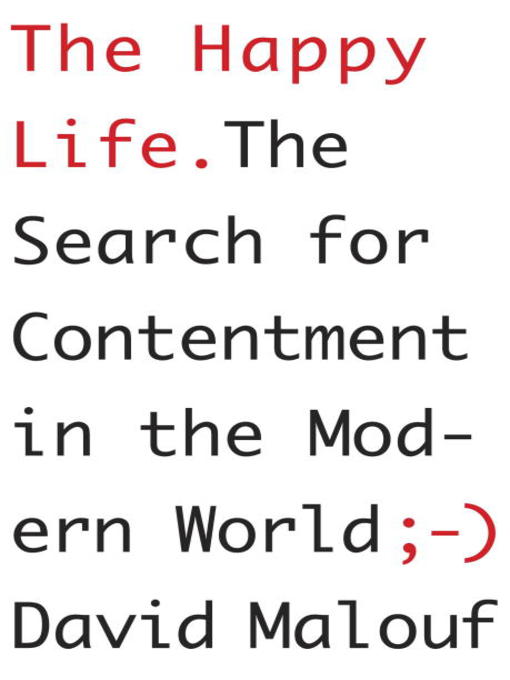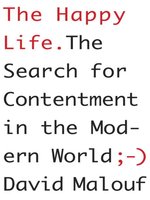من تصميم David Malouf
By Australia’s greatest contemporary author, an elegant, succinct meditation on what makes for a happy life. ;-)
“Happiness surely is among the simplest of human emotions and the most spontaneous,” says David Malouf. But what exactly are we looking for when we chase happiness? At this particular moment in history, privileged, industrialized nations have lessened much of what makes us unhappy: widespread poverty, illness, famine. Yet we are still unfulfilled, turning increasingly to yoga, church, Match.com, drugs, clinical therapy and retail therapy. What is at the root of our collective stress, and how can we find our way to contentment?
Drawing on mythology, philosophy, art and literature, Malouf traces our conception of happiness throughout history, distilling centuries of thought into a lucid narrative. He discusses the creation myths of ancient Greece and the philosophical schools of Athens, analyzes Thomas Jefferson’s revolutionary declaration that “the pursuit of happiness” is a right, explores the celebration of sensual delight in Rembrandt and Rubens and offers a perceptive take on a modern society growing larger and more impersonal.
With wisdom and insight, Malouf investigates that simplest, most spontaneous of feelings and urges us to do the same.
By Australia’s greatest contemporary author, an elegant, succinct meditation on what makes for a happy life. ;-)
“Happiness surely is among the simplest of human emotions and the most spontaneous,” says David Malouf. But what exactly are we looking for when we chase happiness? At this particular moment in history, privileged, industrialized nations have lessened much of what makes us unhappy: widespread poverty, illness, famine. Yet we are still unfulfilled, turning increasingly to yoga, church, Match.com, drugs, clinical therapy and retail therapy. What is at the root of our collective stress, and how can we find our way to contentment?
Drawing on mythology, philosophy, art and literature, Malouf traces our conception of happiness throughout history, distilling centuries of thought into a lucid narrative. He discusses the creation myths of ancient Greece and the philosophical schools of Athens, analyzes Thomas Jefferson’s revolutionary declaration that “the pursuit of happiness” is a right, explores the celebration of sensual delight in Rembrandt and Rubens and offers a perceptive take on a modern society growing larger and more impersonal.
With wisdom and insight, Malouf investigates that simplest, most spontaneous of feelings and urges us to do the same.







